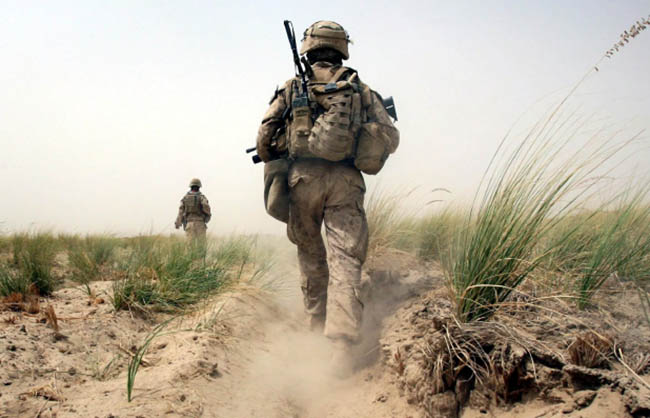The US ushered in its role in Afghanistan through state-building since post-conflict countries are in need of reviving their eroded institutions. The US stepped in Afghanistan when the country was on the verge of collapse and the re-establishment of state required both new mechanism and legitimacy.
Following the downfall of communist regime, Afghanistan founded two governments, run by the Taliban and Mujahedeen, based on religious legitimacy devoid of public will. The cornerstone of new state laid in Bonn Conference by the US and support of political powers, virtually transferred legitimacy from the holy realm to the public will. That is to say, establishing a modern state with legitimacy based on public will and liberal-democratic idea was supported by the international community. Subsequently, the Constitution designated independent institutions for strengthening democracy, and civil organizations played a key role in this regard.
The US political analysts believed that modern state-building will facilitate nation-building in the countries involved in tribal and ethnic conflicts. This way, a powerful state will take all its citizens under its wing and gradually reconcile individuals, though nurturing any kinds of mindset, with one another – this was the building blocks of the current constitution.
The foundation of a new national government following years of war and violence was a new hope for Afghan people. However, with the prominent role of former elements the past structure was revived which rendered irreparable loss to the new state and administrative corruption paralyzed the administration. On the other hand, the government showed no strong determination in removing the corrupt elements from the state machinery. As a result, people still suffer severely.
With his first round of presidency, Hamid Karzai was considered fit for Afghan society both in the eye of the public and the US. To support democracy and state-building, the US showed strong will which sparked a gleam of hope for Afghans. In the second round, the electoral deadlock seemed unbreakable and challenges emerged.
The US former President Barack Obama was of the view that Afghanistan’s political and security predicament had to be resolved democratically. So, he revised his policy. Hamid Karzai, on the other hand, changed his attitude towards the US, which was a blow to Afghan nation. The US supportive policy, according to public belief, passed with lack of concern and reviewing withdrawal from the country during the second round of Karzai’s presidency. This issue filled the air with a sense of anxiety and led to economic stagnation since investment declined. The Taliban capitalized on the vacuum left by lack of concern through reorganizing its group. Karzai’s refusal to sign the security pact with the US and Taliban’s reorganization prompted Afghans to fluctuate between hope and fear. Fear overcame them with the reports about the withdrawal of US forces from Afghanistan.
The deadlock in Karzai’s second round presidency, the mysterious hands of the neighboring countries, and the angry mindsets rooting in past conditions fueled the tension more than ever before.
Ultimately, the US emerged as a remedy in critical time with John Kerry’s trip to the country. The US broke the electoral deadlock, which dogged Afghan people and put severe mental pressure on them. The support of US in this critical time was widely welcomed. In short, America’s policy in breaking the stalemate in the ripe time manifested its role very crucial in tackling the challenges. Hence, the standstill in third round presidential election was resolved. This reflects the fact that the nascent democracy will be in need of international support in case of facing deadlock. National and international support will ensure democracy in countries involved in conflicts. In brief, the US played its role successfully from the first round presidency to the third one with all the ups and downs. The National Unity Government (NUG) was also supported by the US and also got its legitimacy on the basis of public will.
Moreover, the current president was and being considered as a technocrat personality. Muhammad Ashraf Ghani, was optimist and hopeful about the international community in supporting the country and engineered his policy on the basis of such optimism. But he failed to implement his plan and the foreign ministry did not have a positive record, either.
Nevertheless, the NUG was able to re-attract the attention of Washington. In other words, the attention of the Obama’s party was channeled to the country although Karzai’s team narrowed this opportunity during his second round presidency.
Donald Trump has agreed with the democrats since the US will not endanger the structures made by its financial and political sacrifices despite disagreements within parties.
In protecting the post-Taliban structure, the White House showed its strong determination several times. For instance, during the electoral tension and the idea of parallel government and also with the violence broke out during the demonstration of Rastakhiz Movement, the US Embassy issued serious statement bearing clear message.
But despite the signing of security pact, the country is still vulnerable to terrorism. After all, it is believed that sending more troops to Afghanistan will not bring a long-lasting peace in the country. Reinforcing Afghan soldiers will be more effective.
Home » Opinion » US Determination to Support State-Building in Afghanistan
US Determination to Support State-Building in Afghanistan
| Syed Asif Husseini

